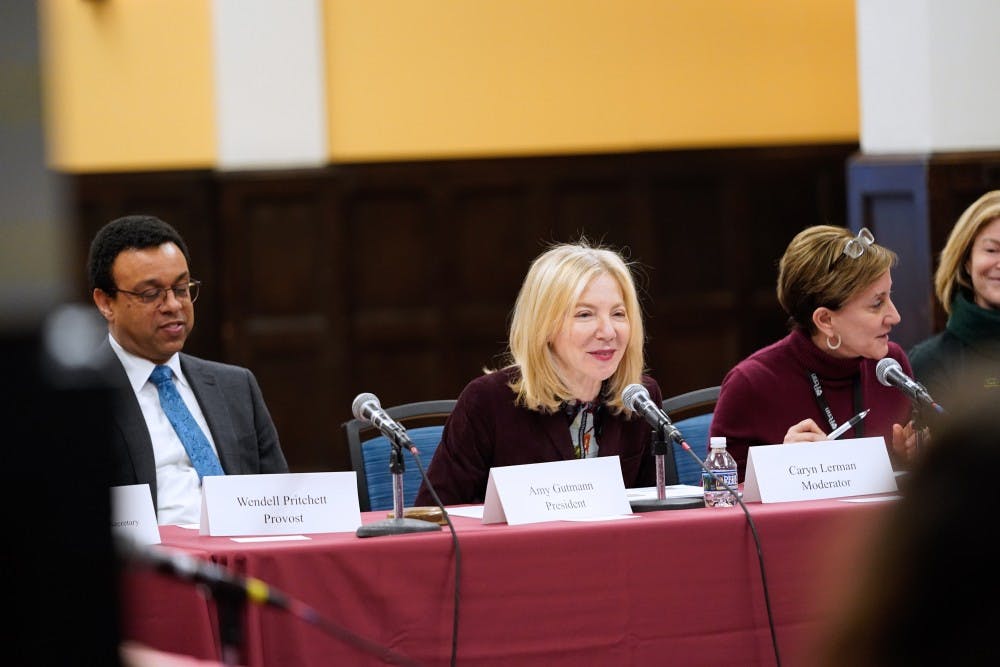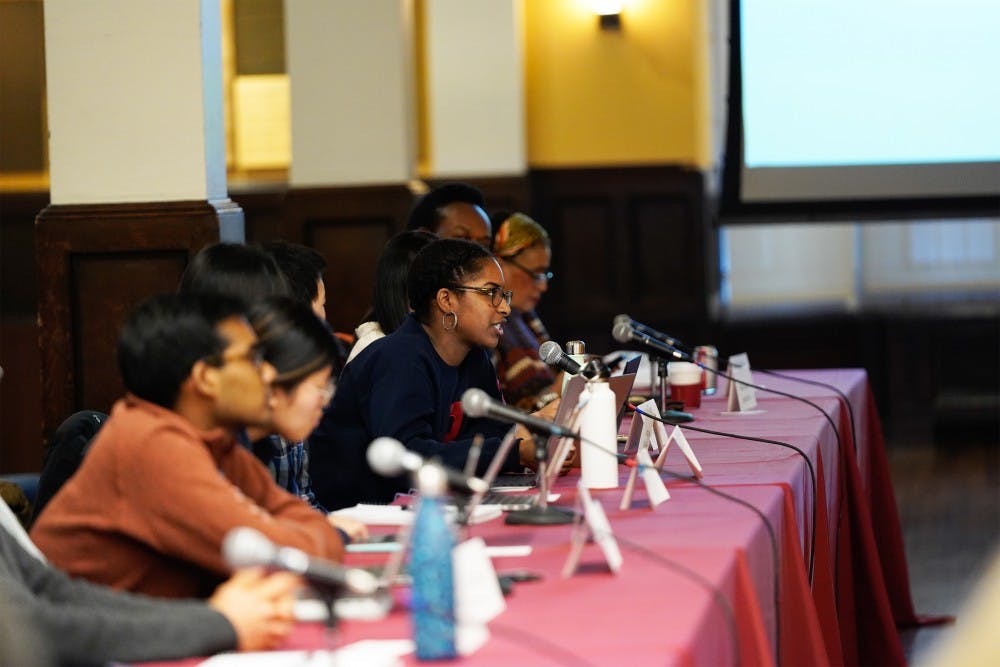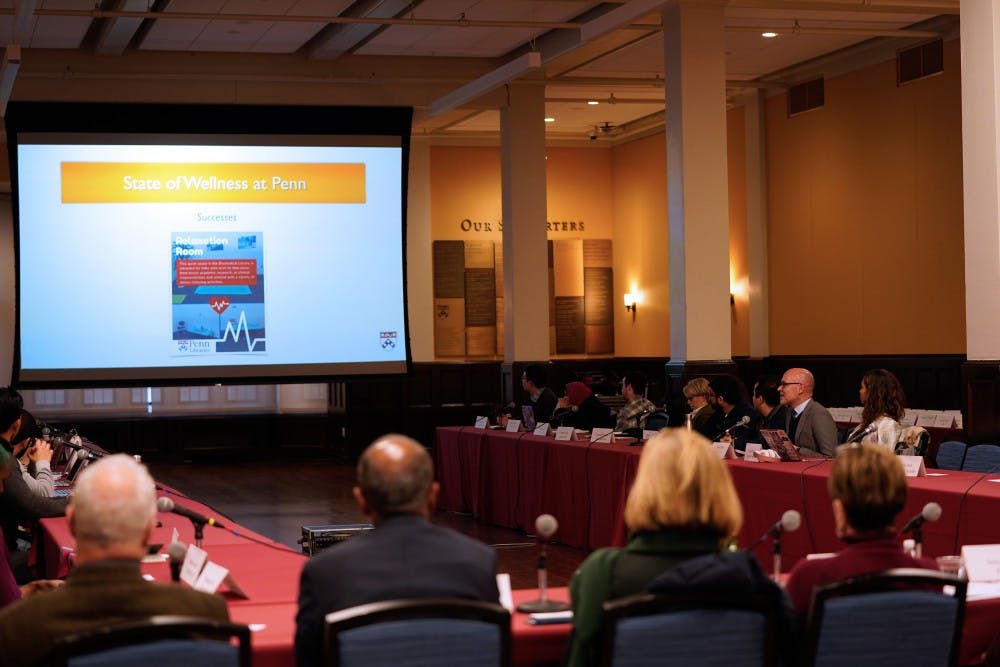
A University Council meeting on Jan. 30 provided a forum for Penn's administrators and student leaders to report the progress of various wellness programs and for Associate Vice Provost and Chief Wellness Officer Benoit Dubé to describe the initiatives he plans on undertaking.
Over the past year, the Penn community has seen significant developments in mental health and wellness resources on campus, demonstrating the administration's shift toward focusing on wellness as a priority for the University. Most significantly, Dubé became the first chief wellness officer in the Ivy League when he began in fall 2018.
The Office of the Vice Provost for University Life grouped five wellness-oriented services — Counseling and Psychological Services, Student Health Service, Campus Health, Penn Violence Prevention, and Alcohol and Other Drug Program Initiatives — under one umbrella led by Dubé. At the meeting, he highlighted statistics showing the services’ reach, noting specifically that 20 percent of students used CAPS last year.
Dubé said he aimed for a cultural shift at Penn that would allow people to be vulnerable about their difficulties and ask for help. He said the campus conversations, of which there have been three iterations, would continue but in a format that allowed smaller group discussions.
Dubé also announced the establishment of a student wellness advising group that would advise him on wellness policy, as well as a contest that would ask the Penn community for ideas to promote wellness of campus.

Originally slotted for two hours, the University Council meeting adjourned more than an hour early. Vice President and University Secretary Leslie Kruhly said there has been no further action on issues brought up at the last University Council Open Forum, including Penn’s investment in the coal and tar sands industries and the mandatory second-year on-campus housing policy.
President Amy Gutmann said in the meeting that redefining wellness “is an ongoing process that requires self-monitoring and that acknowledges that stress is part of our lives.”
Gutmann and Dubé both emphasized the importance of "listening." Gutmann added that she "could not have hoped for a better partnership between students, faculty, VPUL, and the whole University."
Undergraduate Assembly President and College senior Michael Krone spoke about the UA’s approach to wellness, which consisted of improving advising, making club recruitment more welcoming, and lowering costs such as dues for clubs and travel costs for certain classes.
Krone said the UA was working with administrators and student groups to “make sure students have a quick one-stop shop in some way shape or form to access [wellness resources]."
Graduate and Professional Student Assembly President and Sociology Ph.D. candidate Haley Pilgrim described similar efforts among graduate students. GAPSA is looking to address financial stressors and promote a healthier campus culture among graduate students in response to the organization's mental wellness survey results.
Following the meeting, Dubé told The Daily Pennsylvanian that Penn will take part in the Association of American Universities’ campus climate survey, which will launch on Feb. 11 to gauge how students feel about stress, safety and sensitive topics such as how well sexual violence is being addressed at Penn. But data will likely not be available before September 2019. A similar survey was administered in 2015 at Penn and at 27 other universities within the AAU.

Dubé added that it took four years of student advocacy to remove a stressful grading policy at Penn's medical school while he was teaching there.
“I am absolutely convinced because of the experience I had at the medical school that we will see academic policy changes here,” Dubé said. “But we have to be patient.”
"There will be stress, and stress is not the enemy but rather should be reconceived as an opportunity for growth," Dubé added.
Krone said that although stress is inevitable at Penn and in life, “we can do what we can to mitigate — not necessarily eliminate — but mitigate as much as possible,” by providing students with tips to manage stress and by targeting external stressors, like financial issues, that students face.
“We have to acknowledge the unique challenges that everybody has,” Dubé said. “And the only way we can do that is by not dictating, ‘This is the solution,’ [but rather] by saying, ‘These are the different portals where you can access a solution that fits for you.'”
The Daily Pennsylvanian is an independent, student-run newspaper. Please consider making a donation to support the coverage that shapes the University. Your generosity ensures a future of strong journalism at Penn.
Donate







